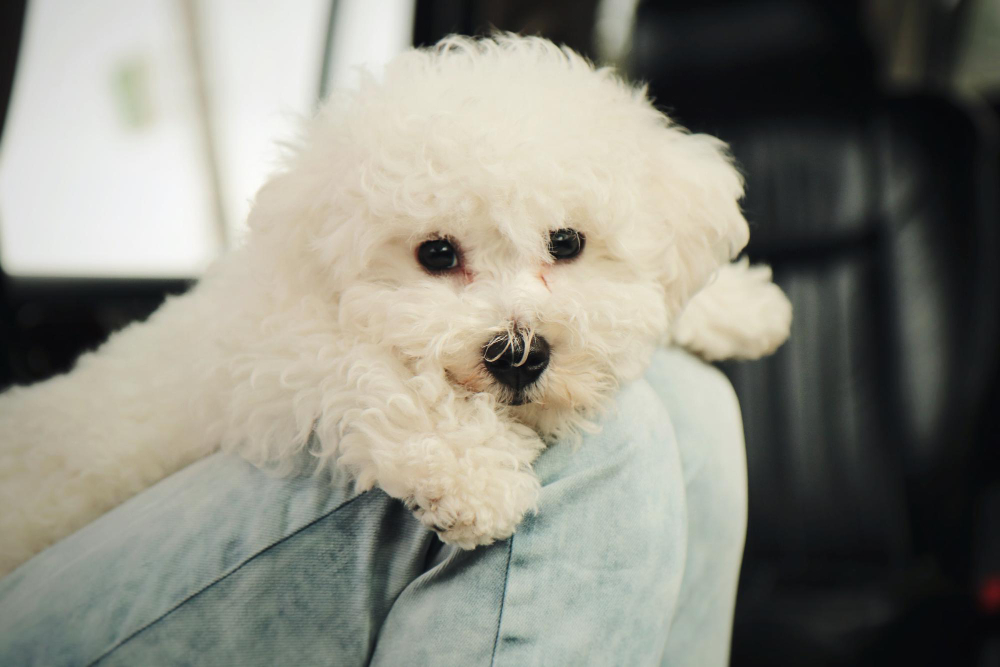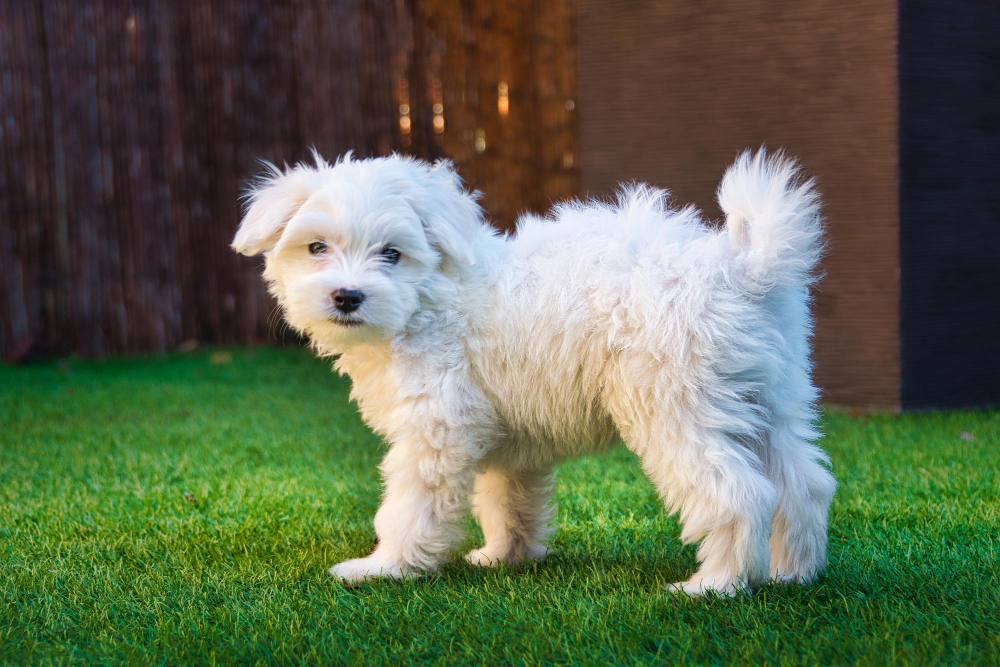The Bichon Frise is more than just a pretty little dog with a cloud-like coat it’s a bundle of joy wrapped in white fluff. Known for its cheerful personality and endless charm, this breed has a way of turning ordinary days into something brighter. With its snow-white curls, twinkling dark eyes, and ever-wagging tail, the Bichon is a living reminder of happiness in motion.
What makes the Bichon so special is its ability to fit seamlessly into almost any lifestyle. Families adore its playful energy, singles enjoy its loyal companionship, and seniors value its gentle, affectionate nature. Always eager to please and rarely in a sour mood, the Bichon thrives on human interaction and quickly becomes the heart of the household. Whether it’s chasing after toys, greeting visitors with excitement, or curling up on the sofa, this little dog has an uncanny way of spreading warmth and joy wherever it goes.
Appearance of the Bichon Frise
| Feature | Description |
| Size | Small breed, 9–12 inches tall, weighing 12–18 pounds |
| Coat | Soft, curly, white double coat with a plush, cloud-like look |
| Face | Round dark eyes, black nose, and a lively, expressive expression |
| Body Build | Sturdy, compact, well-proportioned |
| Overall Look | Fluffy, cheerful, and toy-like |
A Look Back at the Breed’s History
The Bichon Frise has a long history that goes back to the Mediterranean, where sailors kept them as companions on voyages. Over the years, they became favourites among French and Spanish royalty. Their affectionate and adaptable nature made them stand out, not just in noble courts but also as beloved household pets today.
Appearance That Melts Hearts
The first thing people notice about a Bichon is its cloud-like, curly white coat. Not only does it give them a cute teddy-bear look, but it’s also considered hypoallergenic since the breed sheds very little. Their rounded heads, dark sparkling eyes, and lively expressions make them irresistible to dog lovers.
Personality and Temperament
Bichon Frises are famous for their loving and fun personalities. They are:
- Playful and energetic – Always ready for a game or walk.
- Affectionate – They love being with people and enjoy plenty of cuddles.
- Sociable and adaptable – Great for families, singles, and seniors, whether in a flat or a house with a garden.
They generally get along well with children and other pets, making them an excellent choice for family life.

Grooming and Maintenance
A Bichon Frise’s coat may be adorable, but it requires regular care. Their curls can mat quickly, so brushing several times a week is a must. Many owners choose professional grooming every 4–6 weeks to keep their fluffy look. Along with coat care, they also need regular teeth cleaning, ear care, and nail trimming.
Exercise and Activity
Though small in size, Bichons are active dogs. Around 30–60 minutes of daily walks and play keep them happy and healthy. They also love interactive toys and short training sessions that challenge their minds and prevent boredom.
Common Health Concerns
Bichon Frises are generally healthy, but like all breeds, they can be prone to certain conditions such as:
- Skin and food allergies
- Patellar luxation (knee problems)
- Dental issues
- Ear infections due to floppy ears
With regular vet visits, a balanced diet, and proper grooming, most health issues can be managed, helping them live long, happy lives.
Should You Get a Bichon Frise?
If you want a small, affectionate, and lively dog that thrives on companionship, the Bichon Frise could be your perfect match. They need regular grooming and attention, but in return, you’ll have a devoted, loving companion who fills your days with joy.
Frequently Asked Questions About the Bichon Frise
Q1: Are Bichon Frises good for first-time dog owners?
Yes, Bichon Frises are friendly, adaptable, and easy to train, which makes them a great choice for first-time dog owners.
Q2: Do Bichon Frises bark a lot?
They can be vocal, especially when left alone for long periods. Early training and keeping them mentally stimulated can help reduce excessive barking.
Q3: Are Bichon Frises hypoallergenic?
Yes, their coat is considered hypoallergenic since they shed very little, but no dog is completely allergy-free. Regular grooming helps reduce allergens.
Q4: How often should I groom a Bichon Frise?
Brush them several times a week and take them for professional grooming every 4–6 weeks to prevent mats and keep their fluffy look.
Q5: How long do Bichon Frises live?
With proper care, Bichon Frises usually live between 12–15 years, sometimes even longer.







